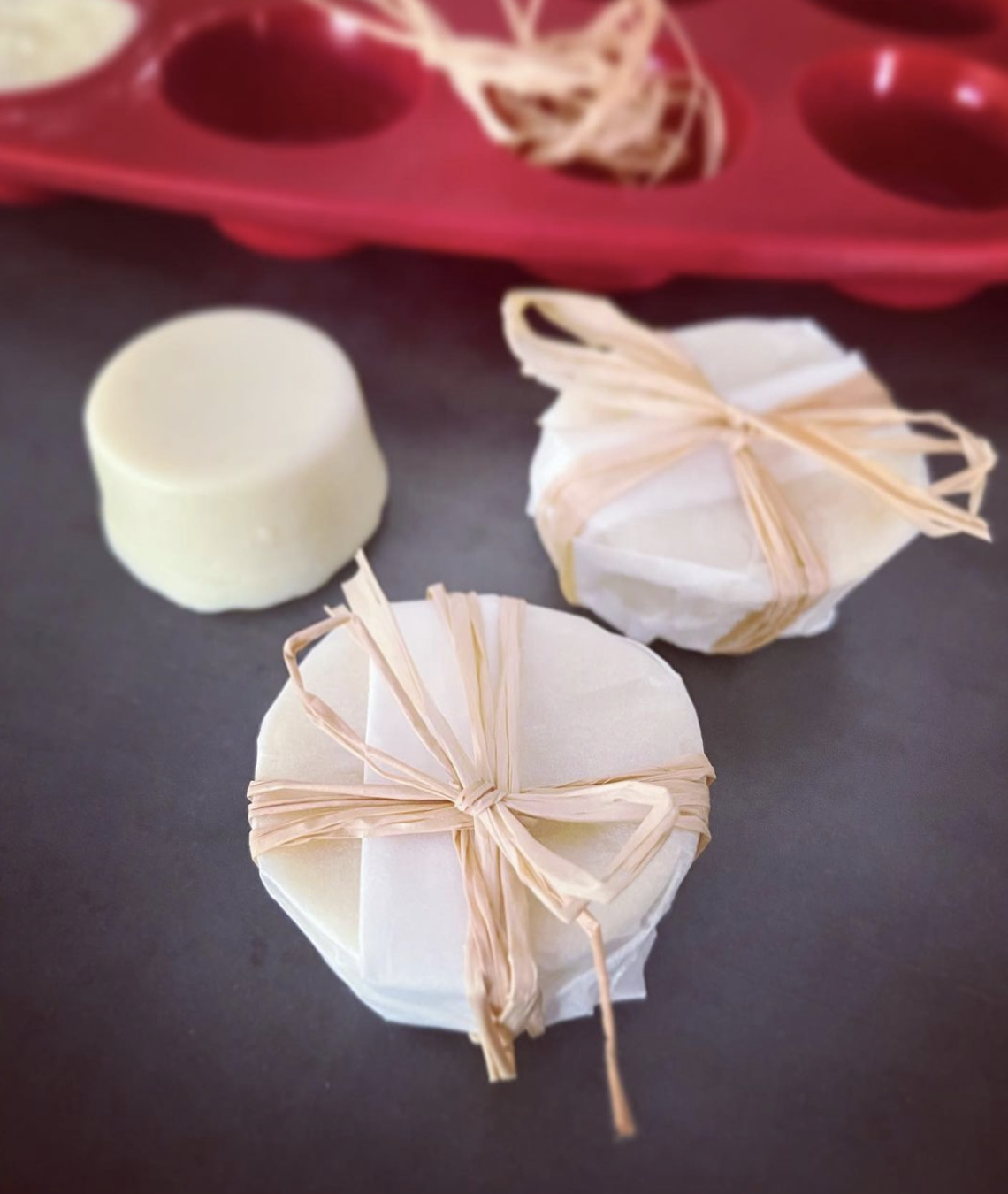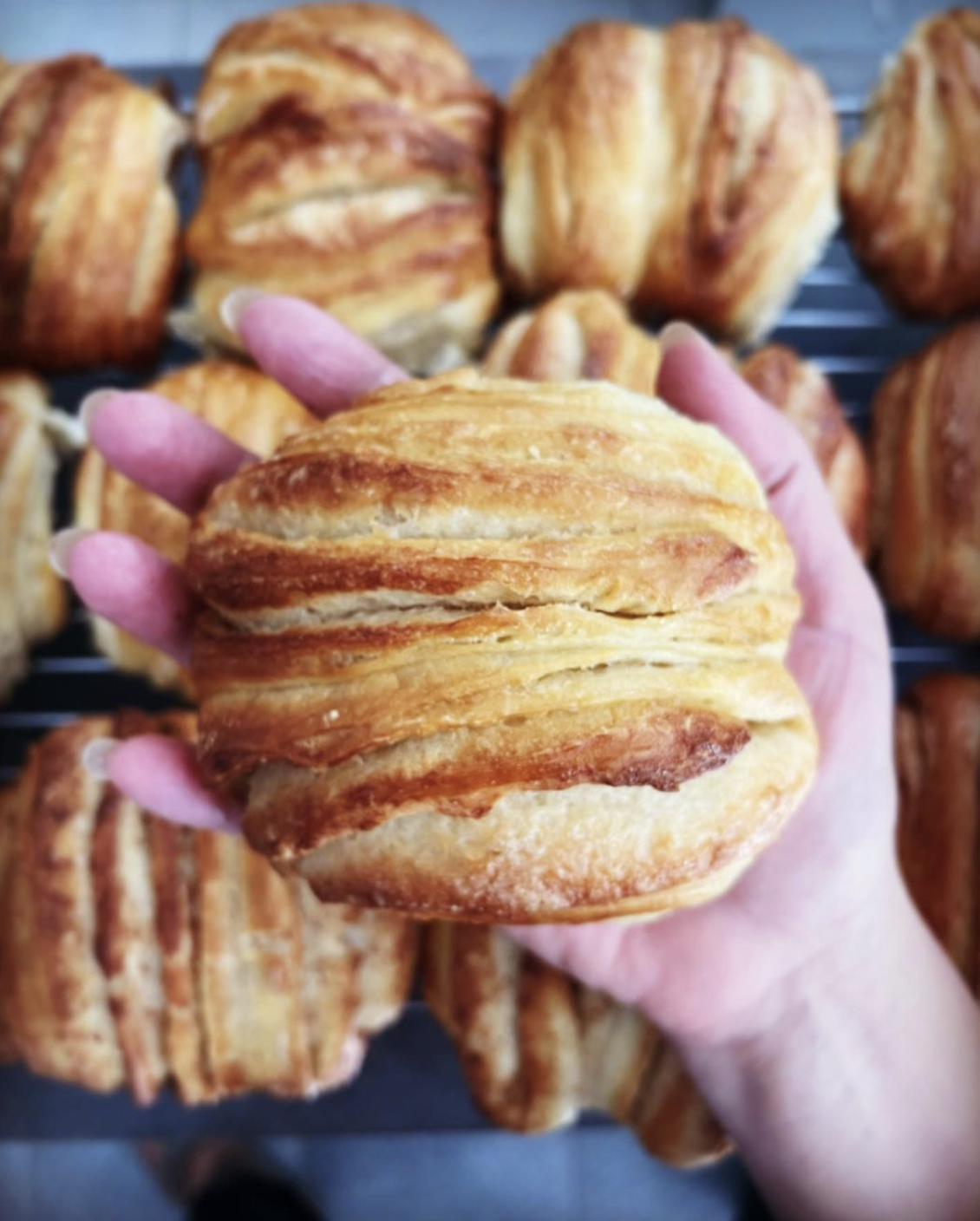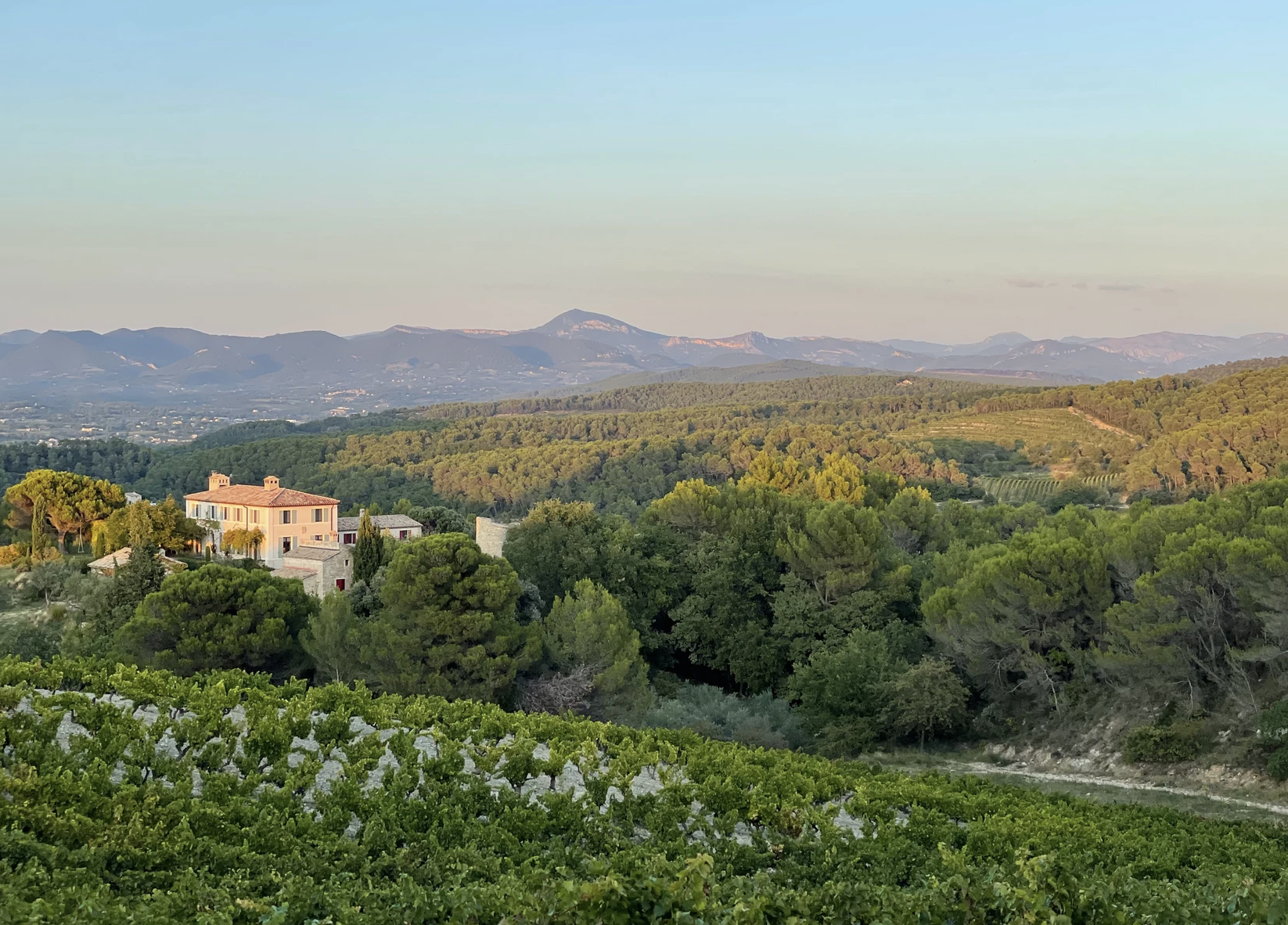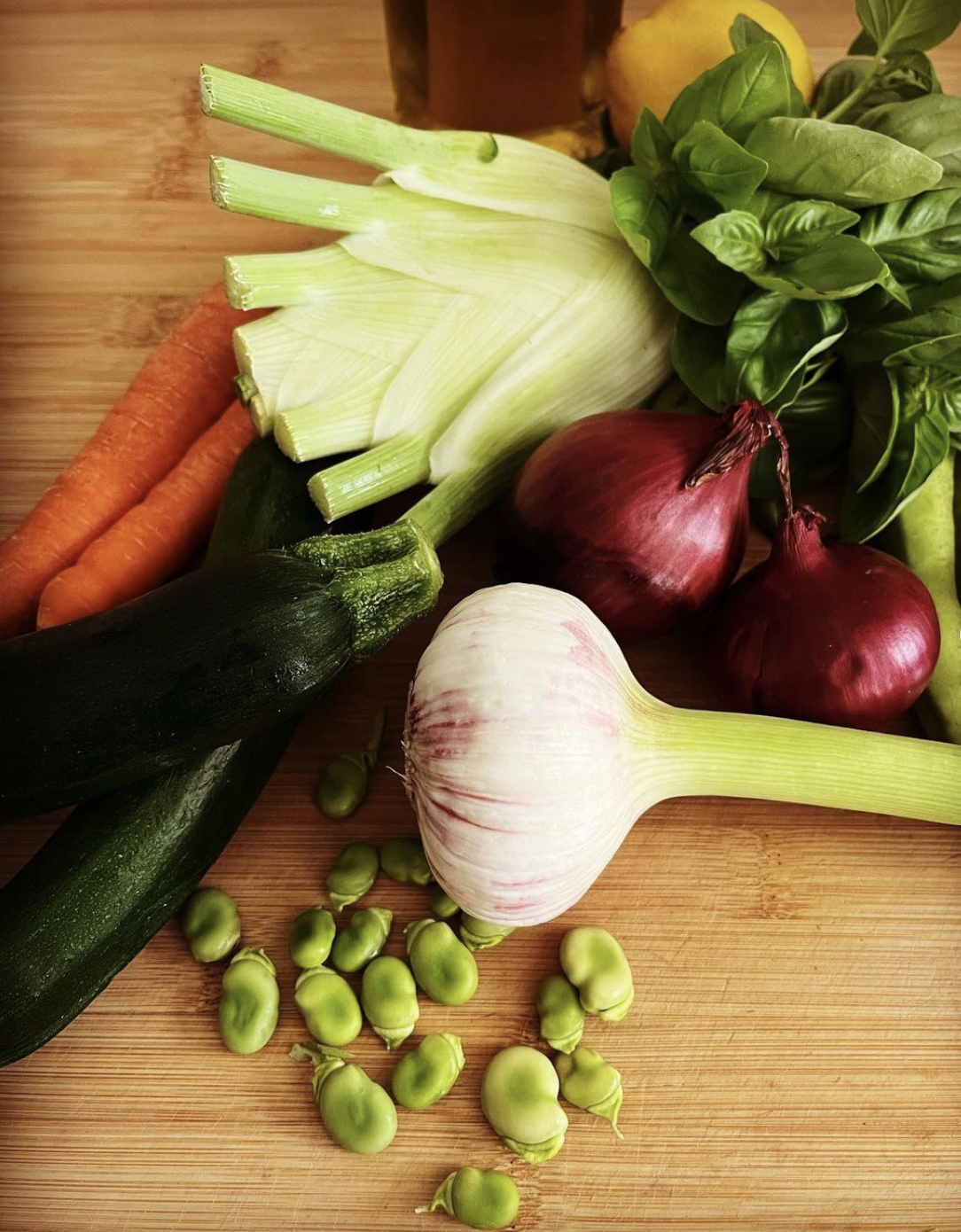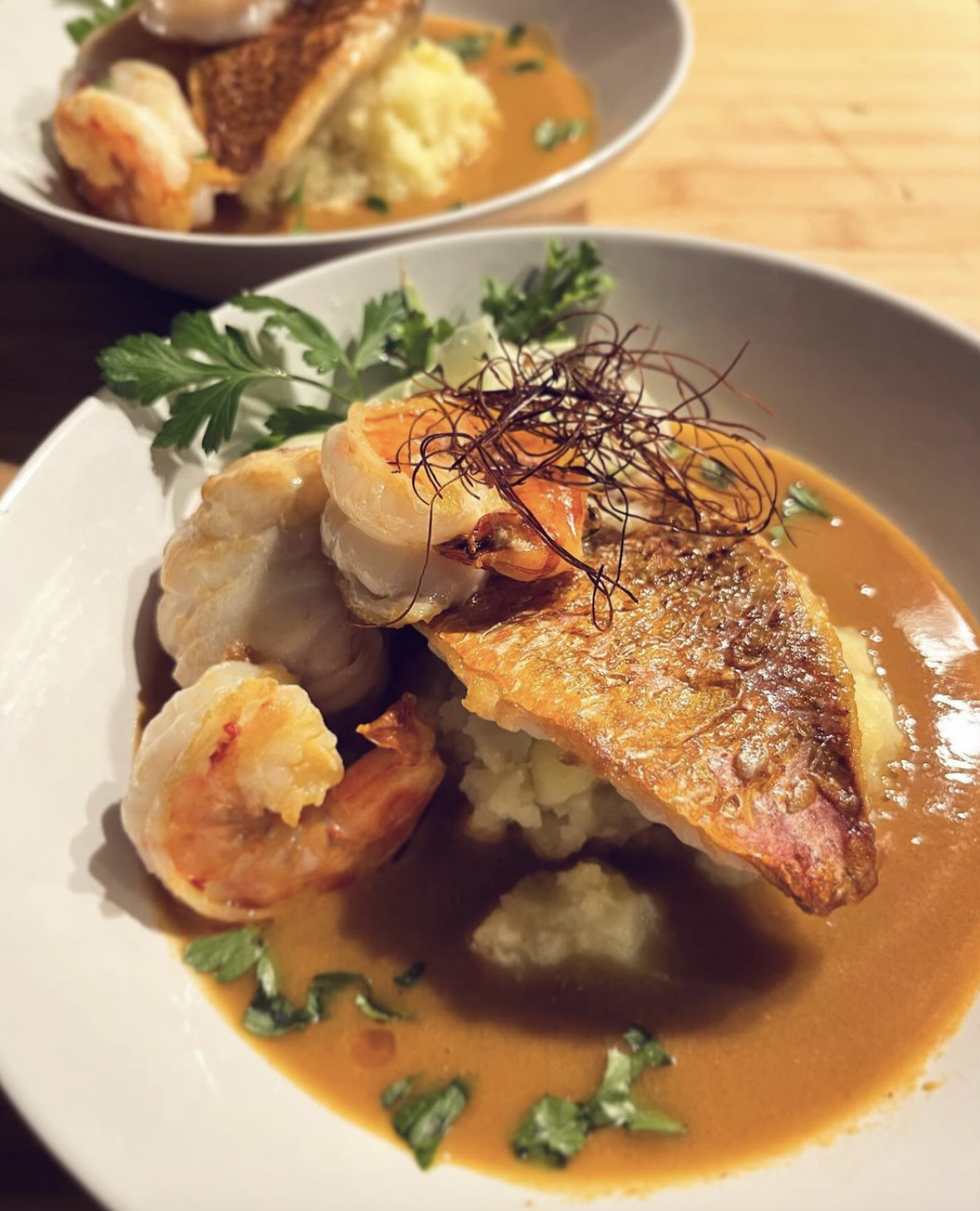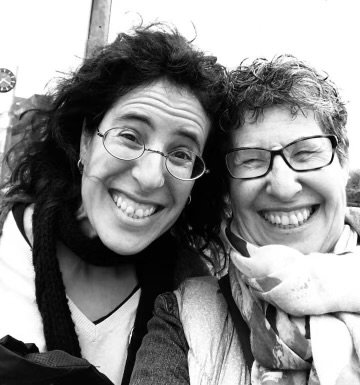Interview with Suzanne Kay of Plate Full of Dreams
The worldly chef who calls Provence her home!
I’m definitely someone who believes in the serendipitous events of life. Those little moments where the absolutely unexpected happens, but you feel like it happens for a reason. I had one of those serendipitous moments during Andy and I’s last day in Vasion this past summer, which happened to fall on a market day. We were spending our last day strolling around the market and saying goodbye to all of our favorite vendors, all while finding items to bring home to our family and friends waiting back in Pittsburgh. The night before, we had attended an incredible apèro at C and M’s historic home on the outskirts of Vaison and were surprised to find a dish full of spicy dried peppers laid out amongst the typical tapenades and olives.
“Where in the world did you find these?” I questioned as M passed by with another platter of delectable goodies fresh out of the oven.
“The Vaison market,” she said, matter-of-factly. “Wait, I think I still have the pouch,” she said, setting down the tray and walking away. When she came back, she handed me the half full bag of the snacks. “Interesting,” I said, looking up at her from my place on the couch, “my dad and Andy’s dad both like spicy things. This would be something really different to find tomorrow at the market,” I replied, taking out my phone and snapping a photo.
The next morning we had picked out our usual gifts of honeys and nougats, but we still hadn’t stumbled across the spicy peppers. Wandering down one of the last streets of the market, we stopped suddenly when we saw a small table lined with the little, red bags resting on rustic, wooden crates. Pulling up my phone, I held it up to compare the photo that I took last night to what was for sale on the table, matching them perfectly. The customer at the table paid and then turned around to leave before stopping just a few feet away.
“Oh,” I motioned to Andy. “I didn’t realize there were two different flavors.” We studied the table, trying to decide which our dads would like the best when the customer appeared back at our side. “Do you need help ordering?” She asked. I think our pause perhaps came across as having reservations, making her think we were confused tourists.
“Oh, no. We just had these at an apèro last night and didn’t realize there were two flavors,” I explained.
“Really? I had these at an apèro last night too,” she explained, holding her bag up.
“That is so funny. We were surprised to find something with this kind of spice here,” I explained and sauntered off, approaching the table to make the purchase. Andy stayed behind, making conversation with the woman and when I returned, I learned that Suzanne was a Canadian who found her way to Provence around a decade ago and specialized in cooking classes.
“Are you serious!” I said, holding up her beautifully curated business card. “I have been asking all of our friends and neighbors if they knew of anyone giving cooking class in our region and they haven't been able to recommend anyone. It’s a shame we leave tomorrow, I feel like I’ve been searching for you for two years!” I said, stuffing her business card into my bag for safe keeping. We chatted for a little while longer and she wished us a safe trip home as we parted ways and headed back to begin packing.
It wasn’t until I was unpacking all of my items back in Pittsburgh that I rediscovered her business card and decided to take a break and check out her site. Page upon page revealed little hints into Suzanne Kay’s life and passion for food and cooking. Her interest in using only the best, organic and seasonal ingredients shined throughout the lovingly prepared plates documented in the photos.
Photo: PlateFullofDreams.com
Both Asian and Mediterranean influences were easily seen as a common thread through many of the dishes featured as well.
Loving the process of cooking and the act of feeding others is something that made me feel as though we were more kindred spirits than our chance meeting had illuminated at the time. I knew I wanted to know more about her and how she found her way to the life she was living, connecting with others through the means of food. I am grateful for the serendipitous event that led us to the same table at the market after going to different apèros the night before, and even more grateful that I get to share a little about this incredibly kind and talented chef. She is a hidden gem that foodies who are traveling to Provence need to discover in order to have a complete, well-rounded experience while visiting. Merci to Suzanne for not only her time, but the beautiful photos throughout this post! See you in a few weeks!
Photo: PlateFullofDreams.com
Tell me about your week-long cooking classes
It is a combination of a vacation class, but quite an intense cooking class, as well. Participants stay at Mas de Mourchon and so the week starts on Monday evening, and we do an apèro dînatoire. So, I prepare some food, and we sit around, and we get to know each other and eat well. In the schedule of the days, we really only have one major meal and people say, oh, well maybe I need to book some restaurants and I say, trust me, once we finish, you probably won't need to eat more for the rest of the day.
Tuesday, I prepare things for people to have a continental style breakfast and we discuss the menu of the day and how we plan things, how do we look at the things that we're preparing for our meal and then we start cooking at a nice pace.
Photo: PlateFullofDreams.com
We cook, we nibble on things and in between all of these things, I do my little breakaways where we talk about whether it's salt or acidic components or different cooking techniques or different cutting techniques, but ultimately, we cook until around two, three o'clock. So, we're cooking from normally 11 until about three, prepare ourselves a four course meal, and then we sit down together to eat. We also do some very specific wine pairings with our dishes from L’Arbre à Vins. Then around six o'clock in the evening, people are on their own to go for a swim, a walk, go into town.
And so, on Tuesday, Wednesday, and Thursday, I have menus prepared. And then the last day, Friday, I tend to leave that as an open day because invariably throughout the week as we're doing things, people say, oh, I've always wanted to learn how to do this thing, or I've always wanted to learn how to do that and so Friday's class becomes kind of a collective of ideas, and sometimes it's hyper bizarre. One Friday class I did, the menu was homemade gyoza dumplings from scratch, cacio e pepe pasta, and boeuf bourguignon.
Photo:PlateFullofDreams.com
So, it was just super bizarre, but those types of things came up and it's quite fun because it gives us the opportunity to add in those different types of things. Sometimes it's not all just about French cooking. I love doing Asian recipes and anything Mediterranean and so if things come up, it's exciting for me to share those things beyond French-style cooking. When I'm doing the menus for the week, I make photo books that you can get done from Vistaprint and I create a hardbound photo recipe book for students to write notes in throughout the week.
Photo: PlateFullofDreams.com
Would you say that the people that sign up for your classes normally have a higher level of skill when it comes to cooking or do you tailor the classes to people's abilities?
I get some people who are very basic and some people who are more advanced. The thing that I think is most interesting about my classes, which are different from other styles, is the key focus of my class is how you balance your flavors, and that's one of the things that has always been my strength in cooking. The whole thing is how do you taste and how do you learn to identify what can make it better? So, no matter what skillset or level you're at, there's always room for learning how to taste and how to identify and enhance.
Photo:www.MasdeMourchon.com
Tell me more about the Mas. How did you get linked up with them?
Backtrack to 2015, 2016, I had an organic food truck in Vaison and it was really an insane amount of work and very successful, but too successful for the size of our little food truck. While I was there, I met a number of very interesting people in the community and one of them were the owners of Domaine de Mourchon. They are the McKinley family from the UK who bought the vines less than 30 years ago and there was no cave, it was just the vines and all those grapes used to go to the cooperative in Roaix, Séguret. The family later developed the cave and the tasting room and became their own independent wine domain. The mom, Ronnie, was the one who did the cooking for some tourist groups that came through.
Photo: PlateFullofDreams.com
The Rick Steves group came for lunch every Thursday throughout the summer with a group of 30 or so people, and they would do a wine tour and lunch, but she wanted to retire from cooking and I ended up taking over the cooking of special events at the domain and things developed. Walter, Ronnie’s husband, was the original founder of the domain, so when they retired and returned to the U.K., their daughter, Kate, took over completely. The house, which was originally their home, was then converted into a high-end holiday rental. So, I rent the mas for my cooking class periods, but it's kind of where I work collectively with Kate on a regular basis.
Photo:PlateFullofDreams.com
What is your favorite day of your class and why?
Tuesday, it's our first-class day and probably the most exciting. We get up and go to the market, and it’s interesting because there's a lot of very basic things that come up as we're walking around the market. Even just as simple as walking around and talking about how you choose, you see all these fruit and vegetable vendors, how do you know what one producer is doing over another? And there's that whole notion of saying, ideally you want someone who's got several different items, but not a million different things. If it's a million different things, it means he's just buying from another fruit and veg market, so he is not growing his own, which is fine, but if the vendor has a few different things, it means that he's actually growing his own and probably picked it that morning. You're getting the freshest, properly ripened produce. So, we buy some stuff, and we go back and we prepare our first meal. The first day is really a giant exploration in flavors, and then we put a lot of that into practice in the following days.
Photo: PlateFullofDreams.com
What do you think makes the Vaison market different from any of the other markets around Provence?
Well, there's the size, right? So, I think in a sense, we're the second largest market in the area, second to Arles. I feel that you've got areas which are accommodating for all different social levels of our society. You've got areas which are cheaper, and to buy some of your basic staples, you've got some areas which have some more gourmet products for people who are either wealthier or tourists who are looking for fancier things. Then you've got your variety of intermediate things in terms of price range. I think there's also a very nice blend between very local producers and people who are just buying and reselling.
Photo:PlateFullofDreams.com
If locals of the south of France or maybe visitors just traveling through want to take a private class with you, is this something that you offer?
So, I do offer private classes and every request I get for private classes, I tailor make the menu relative to what people are looking to learn, what likes or dislikes, food sensitivities, allergies. I also tailor the classes to budget because there are some people who want to go more high-end than others. Then, within those classes, I either come to people depending on what the facilities are in the place where they're staying or have a kitchen here that I use.
If someone wanted to do a single private class with you, how much does that normally cost?
So, depending on the type of class that we're doing and how many people are involved, the price tends to be between 200 and 400 euro per person for a day class, which includes a three or four course meal and wine pairing, all organic. It's a minimum of three hours cooking and followed by the meal and the wine pairing.
Photo:PlateFullofDreams.com
What is your favorite dish to make?
Oh gosh, that's impossible. I'll answer it with the opposite notion and say that bizarrely, I pretty much never make the same dish twice. Almost every single class I'm testing new recipes, I get bored with repetition.
What's your favorite ethnicity to make?
Again, difficult. I think in general, I'm drawn very much to the foods of the Mediterranean, and there are so many similarities which are crossovers between Greek and Southern French and Italian and Spanish. There's a simplicity of using really excellent ingredients, very clean spices, and focusing on just very good quality flavors and lots of olive oil. That's one key aspect of the inspiration for a lot of the foods that I make, the Mediterranean basin. I really do love a lot of Asian cooking as well, though, not so much the notion of sweet saucy stuff. Not the North American aspect of where a lot of our Asian flavors come from. But again, in the same concept of fresh, clean flavors and very good quality produce.
Photos: PlateFullofDreams.com
What would you say is the one style of cooking that is your least favorite?
I think the thing that makes me most frustrated is when recipes seem like they’re intentionally over complicated, and that makes it, for most people, inaccessible. It's not a specific dish or a specific style of cooking, but when the recipe writer intentionally makes things look far more challenging than they need to be. And in a sense, I think that's a lot of what drives me to do what I do, is making really good food accessible, making it manageable.
So if someone were to ask you what constitutes classical Provençal cooking, how would you describe that for someone?
So obviously the south of France is olive oil, and the flavor profile is going to change completely just because of that one choice of your fat, of your cooking oil. Basic Provençal cooking came out of a poor culture, not affluent at all. Basic ingredients, but fresh, grown under the Provençal sunshine and taking advantage of those rich flavors and letting them speak for themselves. You don't get a lot of complex sauces, not like in the north of France where flavors are less bold, so you're mixing more ingredients together to create more subtle, rich flavors. Here in Provençe,, it's peppers, it's tomatoes, it's garlic, it's herbs, and letting those flavors come together in a simple, bold kind of way.
Photo: PlateFullofDreams.com
Where does your name “Plate Full of Dreams” come from?
It's hard to come up with a good business name., but there was that whole notion of trying to find what for me was genuinely following my passion. I'm a painter as well, and I've been an artist and a chef for many years, and they are my two passions, but trying to find a profession out of your passion can be challenging. Having that realization that if I could have a way of supporting myself, which was all about talking about food, sharing food, inspiring people to be more confident and creative, that's a dream for me. So that's where that came from.“Plate Full of Dreams” is the plate you put in front of yourself, and if it's fulfilling your passion and your dreams and other people's, that's what it's all about.
Photo: PlateFullofDreams.com
Have you always been a chef or have you had other lives?
I did my formal studies in the Beaux-Arts, so it was a precursor to that. I went to an arts high school, a kind of performing arts and visual arts high school. From there, I went to study in an art university in Toronto, did my studies in painting and jewelry design and when I graduated, it was just at the beginning of one of the recessions in Canada and I said, well, it's not the best time to launch a business in custom designed jewelry. I had my British passport as well as my Canadian, and said, okay, well, I'm moving to Europe. I sold all of my belongings and I moved to Europe and traveled for a bit. When I started traveling, obviously the thing to do was to work in restaurants and I ended up starting to cook more professionally on a basic level. I was living in Santorini, Greece and got a job in a restaurant, but it taught me some of the most amazing fundamentals like grilling meats over charcoal or frying foods. I grew up vegetarian, so we didn't eat meat and we didn't fry things. Then I moved to Scotland and ended up working at a fine dining seafood restaurant and then in a small deluxe hotel where within a couple of years working there, I worked my way up to head chef. It was small, dinner only, everything made fresh every day, a maximum of 22 diners, it was a dream job. The owners were fantastic and let me experiment and their inspiration was Mediterranean flavors. It was all just a wonderful, wonderful experience. That's really where this all came from, where this kind of passion that has lasted for this long started from.
Photo: PlateFullofDreams.com
So you've lived all over the world. Where was your favorite place to live and your favorite dish from there?
I think I still have to say Greece, living in Crete. I think something as simple and as fresh as a delicious Greek salad is so shockingly good when you have the ingredients picked that morning and the most amazing feta and olives from the guy's tree down the road. I don't know if I can say that's my favorite dish, but it's a flavor experience that I was so touched by.
Suzanne and her mother, Sasha
Who has had the greatest influence on your cooking?
I could laugh and say my mother because she was a terrible cook. We joke about it. When we were growing up, my parents tried to go fully organic and macrobiotic, and she just didn't have a passion for food. It wasn't her thing. Here she was back in the early seventies, experimenting with tofu, grinding her own flowers, and looking for alternate sugars. It was a complete and utter disaster, but it opened up my palate to the potential of other flavors, and it opened up my palate to a notion of using spices, vegetables and grains in a way to create a healthy protein rich diet without meat and I really do think that even though it was not a flavorsome or always successful mode of eating, without that, I would not have developed a desire for a diverse culinary experience. We had a great organic garden out the back of the house, and we used to go out and pick vegetables in the morning, and that would be part of what we would have in our salad for lunch. Then my parents actually ended up fighting the city against spraying because the house was backed onto the school field, and they were spraying pesticides on the lawn where we as kids were playing at the same time. They actually ended up taking that to the court system and ended up winning. It was a real kind of cultural shift for a lot of people, and I'm proud of them for that.
Vacation classes are filling up for 2024, but some spots are still available in May and October. For more information on please check out Suzanne’s site: PlateFullofDreams.


